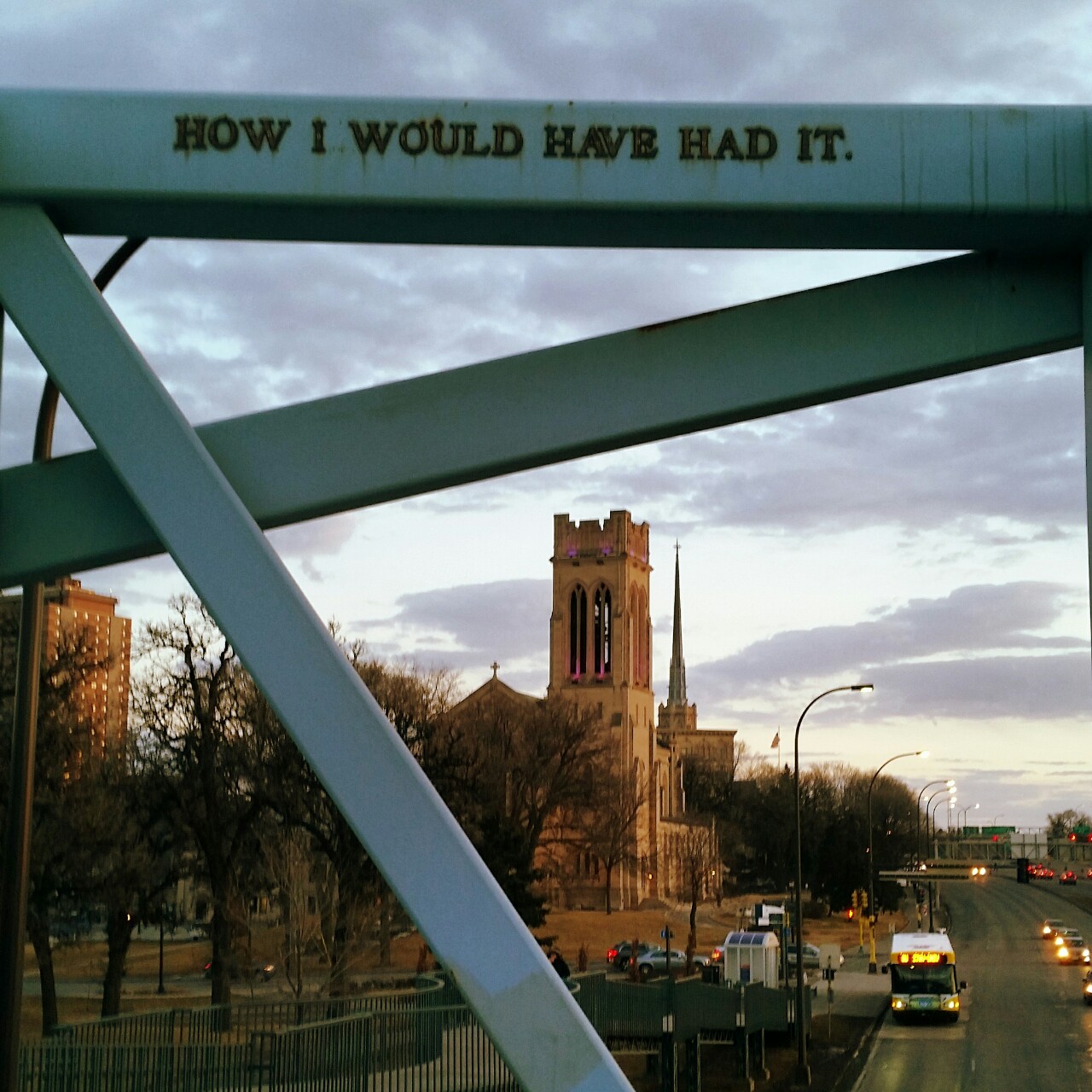Ambiguity
Jayne English
 “God will find the pattern and break it.”
- From John Ashbery’s “Anticipated Stranger,”
“God will find the pattern and break it.”
- From John Ashbery’s “Anticipated Stranger,”
In the TV show The Last Man On Earth, the plot develops to where three people are left in the world; and Phil, who reluctantly agreed to marry Carol since she was the last woman on Earth, now wants to be with Melissa, the second to last woman on Earth. It was too easy for Phil to persuade Carol and Melissa that he needed to have sex with both of them to repopulate the world. The question Phil slyly asks and Carol takes up as her own rallying cry is: “Do you want our babies to have sex with each other?”
Watching them grapple with the consequences of a two parent world was uncomfortable, because it brings up awkward questions like, wouldn’t Adam and Eve’s children have had to been incestuous in order for them to be fruitful and multiply?
The whole broken world is flooded with ambiguity. How do we humans, who craved knowledge of good and evil from the start, live in a world where there are so many things left unexplained? Aren’t there always questions we can’t really answer about the Bible, creation, the universe, the human brain? The realm of poetry is also steeped in ambiguity. There is a John Ashbery poem written across the beams of a bridge in Minneapolis. Even after discussing it with people who are fluent in Ashbery, I still can’t make much sense of it. Megan Snyder-Camp writes an essay on the challenge of ambiguity in Ashbery’s poems. She says, “It’s where I remember, after that lyrical tumble, that I’m not alone in this poem, but rather have to make room for the poet and his discovery as well.” I think she’s saying that sometimes we just have to leave room for the poet to know what we cannot know. The realms of the ambiguous are one way we’re reminded who we are. Another line from Ashbery’s “Anticipated Stranger,” says “Oh well, less said the better, they all say.” Maybe this is God’s conclusion. While he speaks to us through his word, he also speaks without words, in metaphor, through trees and stars and rivers. God’s reign goes beyond the Ashbery quote. He doesn’t just find the pattern; he makes the pattern, and breaks it as he wills. Can we be at home in ambiguity?